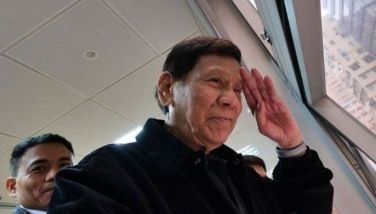Office for Competition: Useless?
In a country like ours where inadequacies abound, it should be heartwarming if we can single out something that we could be in abundance of. Sadly, however, if there is something of that sort (in abundance), it should be poverty incidences. If we should care to find another one, it should be in our number of laws. We are truly in abundance of it. Miserably, however, most of these laws are either not implemented or anemically executed.
For one, the Oil Deregulation Law is seemingly toothless. To recall, as the year began, oil (unleaded and premium gas) retail prices have started in the high P40s and low P50s for small and major players, respectively. As the global prices increased by 5% towards the end of January, local retailers raised their prices by about the same rate, 5%, or to low P50s and to mid P50s per liter for small and major players, respectively. In late February to early March, global prices have went down and even lower by 1% of the prices at the start of the year or about 6% from the prices towards the end of January. Yet, disgustingly, then, both small and major players offered just token reductions (just a measly 3% from the end of January prices) of their retail prices.
Moreover, just last week, giant oil companies Petron Corp. and Shell Philippines as well as independent oil firm PTT Philippines raised their gas prices by 20 centavos per liter effective Tuesday (October 22, 2013 at 6 A.M.), allegedly, on account of the upward movement of the prices in the international market. The facts, however, showed otherwise. These companies raised them despite global oil prices (West Texas Intermediate) skidding from US$102.02 per barrel in October 11, 2013 to US$96.86 in October 23, 2013. Then, probably, with their consciences disturbing them, Shell Philippines announced a rollback on their prices last Saturday (to be effective yesterday). This time, they said it correctly. The global prices are going down.
With these developments, even in an era where deregulation encourages competition and have somehow brought fruition to consumers (such as, the airline industry), we shall hear more clamors for government control over the oil industry. They shall surely demand for more serious efforts from lawmakers in abolishing the Oil Deregulation Law, or, that we shall go back to the government-controlled era. Furthermore, they shall surely claim that these giant oil industry players are forming a cartel and are dictating prices.
While there is a big possibility that this proposal will gather steam and maybe popular in the end, its popularity may not be at all the solution we need. It can be recalled that the Oil Price Stabilization Fund (OPSF) was set up in 1984. Then, as part of the policy, the OPSF was supposed to help protect consumers from fluctuations in product prices while providing refiners with adequate margins. In 1996, the OPSF was running a large deficit and was financed by taxpayers’ money to the tune of US$40 million a month. Knowing fully well that crude oil is the Philippines’ largest single import (which accounts for 7 percent of the country’s total import bill) the amount involved was just too material. Simply put, it was and shall be economically catastrophic.
Furthermore, while the general public accuses these oil companies of forming a cartel (it simply means an agreement among firms or companies for the primary purpose of controlling prices), the same act explicitly prohibits this practice. Obviously, therefore, the law is broadly complete. However, some unscrupulous businessmen are just toying with it and have unduly taken advantage of the general public’s helplessness.
Ridiculously, these possible malpractices are happening under the nose of the Department of Justice or DOJ’s Office for Competition. To recall, in 2011, PNoy signed Executive Order No. 45 designating the DOJ as the competition authority. It was supposed to, among others, (a.) investigate all cases involving violations of competition laws and prosecute violators to prevent, restrain and punish monopolization, cartels and combinations in restraint of trade; and (b.) Enforce competition policies and laws to protect consumers from abusive, fraudulent, or harmful corrupt business practices.
Clearly, therefore, everything is in place. What is important though is for the DOJ's Office for Competition to gather more teeth that are tough enough to bite and cut the evils of these opportunists’ greed and selfishness. Otherwise, they will be rendered useless.
For your comments and suggestions, please email to foabalos@yahoo.com.
- Latest






















